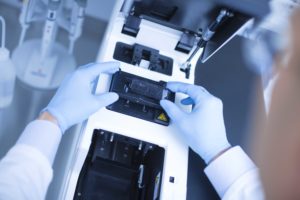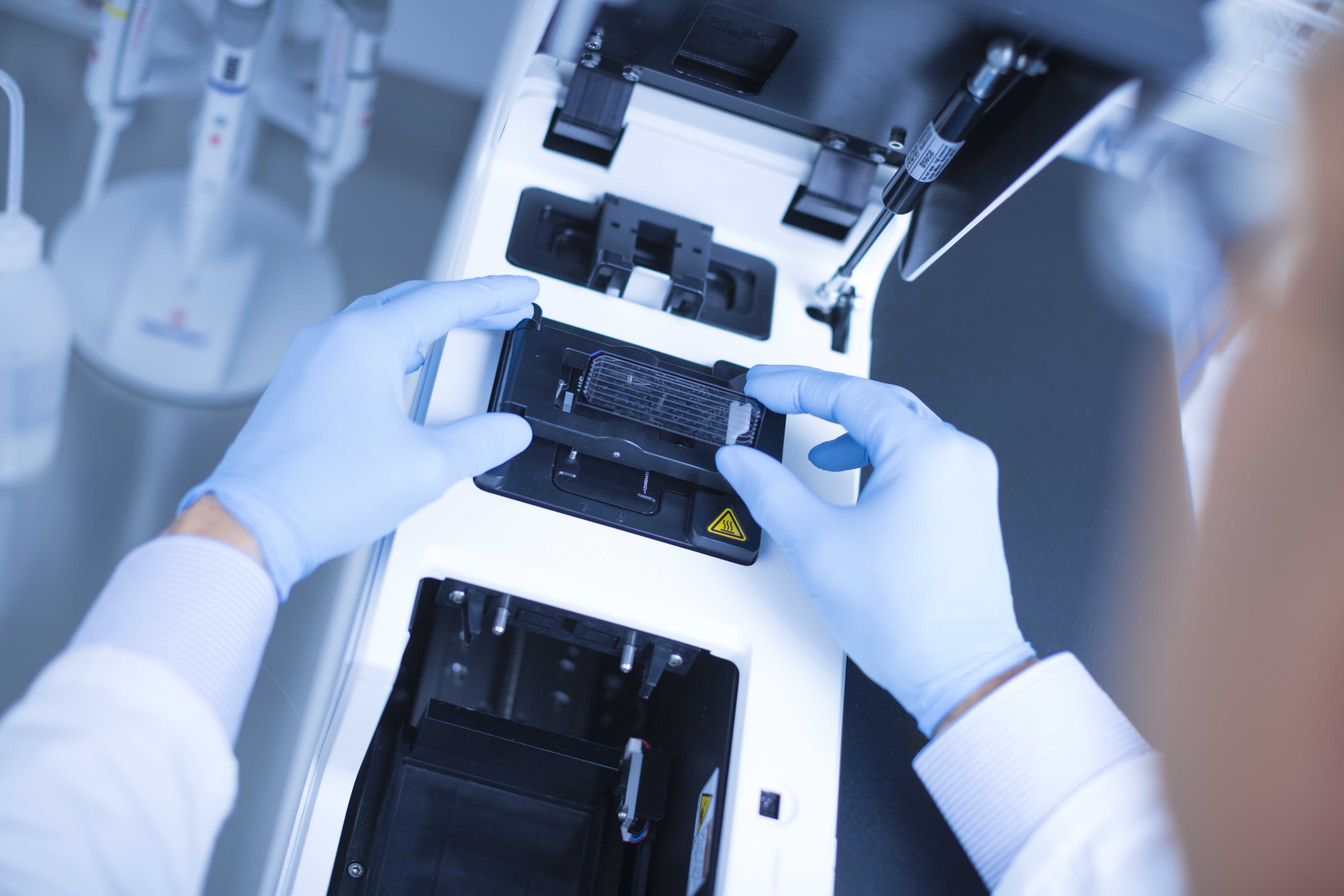Great success for cancer research at Ulm University Hospital: The leukaemia special research area (SFB 1074) will continue to be funded by the German Research Foundation (DFG) with approximately 11 million euros over the next four years. This means that the highly successful SFB “Experimental Models and Clinical Translation in Leukaemias” has reached its maximum funding period. The main goals of the cancer researchers led by SFB spokesperson Professor Hartmut Döhner are a deeper understanding of the cellular and molecular basis of leukaemia development and new approaches for personalised blood cancer therapy.
In the leukaemia Collaborative Research Centre, experienced and young researchers are investigating the causes of the development of various forms of blood cancer in a total of 15 subprojects and two central projects. In the last two funding periods, scientists from different hospitals and institutes of the University and the University Hospital of Ulm have gained important new insights: With the help of experimental models, they have, for example, been able to create a genetic “mutation map” for each of the frequent leukaemia forms “acute myeloid leukaemia” and “chronic lymphatic leukaemia”. This enables the prognosis of such leukaemia patients to be determined more accurately. “Not only in the decoding of genetic mutations were and are scientists of the SFB leading or significantly involved. We are also making important contributions to the development of innovative molecularly targeted drugs as well as new antibodies,” said Professor Hartmut Döhner, spokesperson of the SFB and Medical Director of the Department of Internal Medicine III at the University Hospital of Ulm. The results of this research have been published in high-ranking journals such as the “New England Journal of Medicine”, “Nature” or “Science”. Hartmut Döhner, who is also spokesperson of the Comprehensive Cancer Centre Ulm (CCCU), is himself one of the most frequently cited leukaemia researchers worldwide.
Award as Oncological Top Center
The conditions for leukaemia research in Ulm are excellent. SFB scientists have access to numerous blood and bone marrow samples from patients who have been treated with new drugs in clinical trials. In fact, the leukaemia biobank of Ulm University Medicine is one of the largest in the world. “The continued funding of our SFB is proof of our outstanding research achievements, which has once again been confirmed by an international review panel. Research into the cellular and molecular basis of the development of leukaemia, the refinement of diagnostic methods and the development of new drugs for the personalised treatment of leukaemia patients – this is our mission,” said Professor Döhner summarising his achievements. Patients at the Comprehensive Cancer Centre Ulm of the University Hospital and the Medical Faculty often benefit directly from the results of the Collaborative Research Centre. In 2019, the CCCU has once again been awarded the title of Top Oncological Centre by German Cancer Aid.
The conditions for leukaemia research in Ulm are excellent. SFB scientists have access to numerous blood and bone marrow samples from patients who have been treated with new drugs in clinical trials. In fact, the leukaemia biobank of Ulm University Medicine is one of the largest in the world. “The continued funding of our SFB is proof of our outstanding research achievements, which has once again been confirmed by an international review panel. Research into the cellular and molecular basis of the development of leukaemia, the refinement of diagnostic methods and the development of new drugs for the personalised treatment of leukaemia patients – this is our mission,” said Professor Döhner summarising his achievements. Patients at the Comprehensive Cancer Centre Ulm of the University Hospital and the Medical Faculty often benefit directly from the results of the Collaborative Research Centre. In 2019, the CCCU has once again been awarded the title of Top Oncological Centre by German Cancer Aid.
One of the goals of the third funding period is to find out why even the new, molecularly targeted drugs often fail to respond after different treatment periods: Leukaemias develop resistance mechanisms against these substances. The researchers also hope to use new technologies in the laboratory, such as sequencing on the leukaemia single cell level.For the first time, external research groups can also be included in the leukaemia Collaborative Research Centre in the new funding phase. “With two top-class scientists from the German Cancer Research Centre, DKFZ, in Heidelberg and two ‘old Ulm’ scientists who have since been appointed to professorships at the Charité University Hospital in Berlin, we will be able to further strengthen the Collaborative Research Centre,” said Professor Klaus-Michael Debatin, deputy SFB spokesperson and medical director of the Department of Paediatrics and Youth Medicine at Ulm University Hospital. Professor Debatin is regarded as a leading expert on childhood leukaemias.
Top position of Ulm’s cancer medicine
Overall, the Collaborative Research Centre brings together the expertise of renowned scientists from different disciplines: “With the targeted appointment of professors and young researchers, we have been able to further strengthen leukaemia research in recent years. On the other hand, a total of six project leaders from the previous funding period have been appointed to renowned professorships or positions in Germany, Spain and Canada – an indication of the outstanding quality of the SFB,” said Professor Thomas Wirth, Dean of the Medical Faculty.
Overall, the Collaborative Research Centre brings together the expertise of renowned scientists from different disciplines: “With the targeted appointment of professors and young researchers, we have been able to further strengthen leukaemia research in recent years. On the other hand, a total of six project leaders from the previous funding period have been appointed to renowned professorships or positions in Germany, Spain and Canada – an indication of the outstanding quality of the SFB,” said Professor Thomas Wirth, Dean of the Medical Faculty.
Research into the haematopoietic system and in particular into leukaemia diseases has a long tradition in Ulm, dating back to the foundation of the university. “The renewed funding of the SFB continues this success story and strengthens the leading position of Ulm’s cancer medicine. New insights gained in the SFB will contribute to the continuous improvement of the cure rate in leukaemia patients,” said Professor Michael Weber, President of the University of Ulm. The Medical Director and Chairman of the Board of Directors of the University Hospital Ulm, Professor Udo X. Kaisers, is also pleased about the great success for Ulm University Medicine: “The internationally renowned scientists of the SFB transfer basic research into clinical research and in this way develop new treatment options. The fact that this important research is now being promoted once again not only strengthens Ulm University Medicine, but also directly benefits our patients”.

